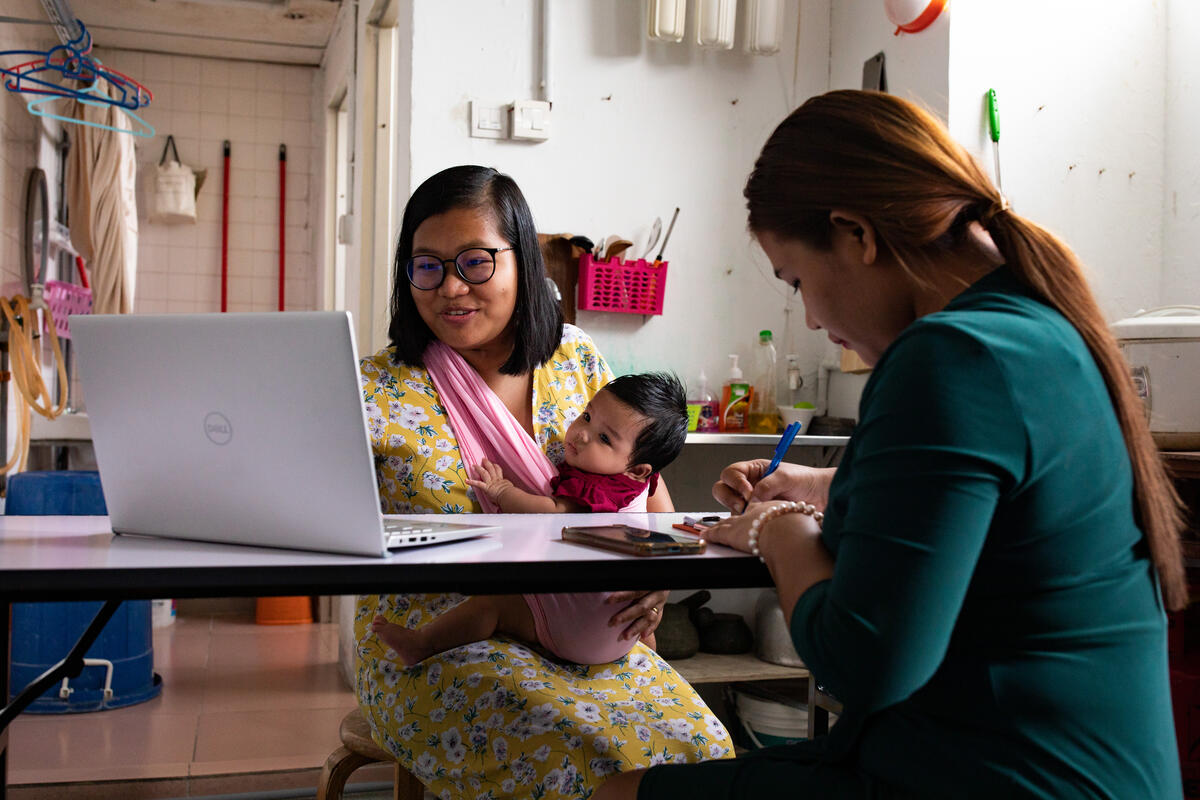Refugee health workers step up for coronavirus response in Latin America
Refugee health workers step up for coronavirus response in Latin America

Countries across Latin America are calling on refugee and migrant health workers to support their national responses to COVID-19. Across the region, thousands are now working with national health systems responding to the pandemic while many more stand ready to support and give back to the communities sheltering them.
As COVID-19 cases increase by the day and already over-stretched health systems strain under mounting pressure, UNHCR, the UN Refugee Agency, is supporting these efforts that tap into the skills and resources that refugee medics can provide.
Several countries in the region have now put in place special measures. These authorize the hiring of foreign-qualified health professionals and technicians, including those awaiting licensing or whose certification is yet to be validated by host countries. Other states have adopted expedited recognition processes to fast-track their inclusion in national health responses.
Peru has now authorized the hiring of foreign certified health professionals of any nationality to support the COVID-19 response. As emergency measures, Argentina and Chile have authorized the hiring of health professionals whose qualifications have not as yet been validated by national authorities.
With a number of refugees studying medicine on government-supported scholarships in Cuba, refugee students in their third year of medical school or above are now also able to join the emergency response. In Brazil, Cuban doctors have also been exceptionally authorized to work on national health responses across the country.
In Mexico, UNHCR is working with federal authorities to establish an expedited mechanism for the recognition of qualified and experienced refugee and asylum seeker health workers to join the country’s emergency recruitment pool. In Colombia, the Ministry of Health is working with the Association of Health Professionals to draw in Venezuelan health workers into the national health system.
Networks of foreign health professionals are also being formed across the region to offer their knowledge and experience in support of their host countries. Through its contact with refugee and asylum seeker communities, UNHCR is aware of thousands of forcibly displaced health workers who have expressed their willingness to work alongside their peers in the COVID-19 response.
Where national approaches permit, our teams are connecting qualified and experienced refugee medics with hospitals and clinics in need of additional staff to confront the health crisis.
Latin America has shown deep generosity in the face of an unprecedented forced displacement crisis in Venezuela that has impacted nearly every country in the region. The coronavirus pandemic is now compounding an already desperate situation for many refugees and their hosts. UNHCR has been advocating for and supporting refugee inclusion efforts to help with the response.
We also continue to advocate for all refugees and others in need of international protection to be fully included in national health systems, with equal access to health services. Inclusion will help not only to protect the rights of refugees but will also serve to protect public health and stem the global spread of COVID-19.
For more information on this topic, please contact:
- In Panama, Olga Sarrado, [email protected], +507 6640 0185
- In Mexico, Sibylla Brodzinsky, [email protected], +52 55 5125 2800
- In Geneva, Shabia Mantoo, [email protected], +41 79 337 7650
- In New York, Kathryn Mahoney, [email protected], +1 347 443 7646









